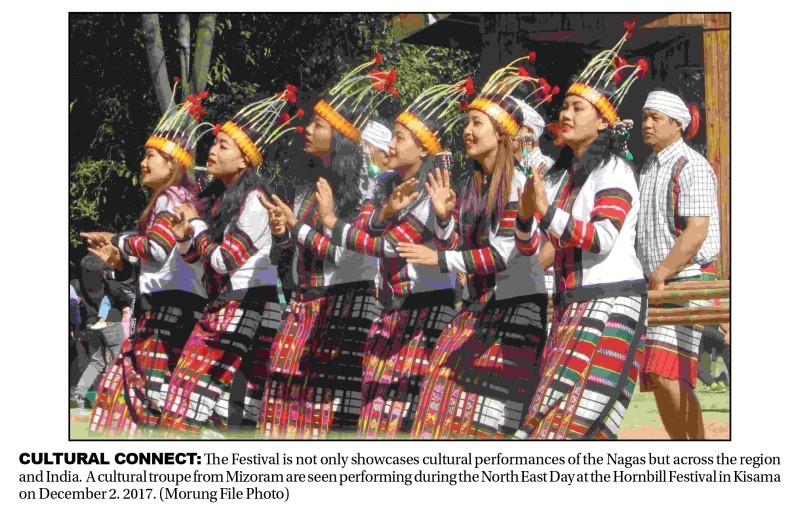
Vishü Rita Krocha
Kohima | December 10
Even as the 21st edition of the famed Hornbill Festival went virtual this year, there was hardly any air of festivity from December 1-10, a period which normally reverberates with frenzied activities in the State.
Many people also did not join the ‘Virtual Hornbill Festival 2020’ that was broadcasted on the three news channels. Some who did expressed disappointment with it.
“We have built Hornbill Festival to this level. It has become a brand, and suddenly there’s a drop of quality and content (referring to what was broadcasted). It’s like a fall from a huge cliff”, a viewer who did not wish to be named, commented.
Reiterating that the quality and the whole creative aspect of it could have been better, she emphasized that “the whole spirit of festival is not just dancing” and felt that production teams could have been sent to the districts to get something worthwhile.
“I honestly felt that if it was going to be like this, the virtual Hornbill Festival should not have been done at all as it represents the brand we have built for so many years”, she further remarked.
Another viewer meanwhile acknowledged that with the ongoing pandemic, the government took the safest way to mark the event. “But when you say ‘virtual hornbill’ you also expect something live at least,” she stated adding that the broadcast was “disappointing.” “Visuals from archives are nothing new for our people,” she added.
Entrepreneur and technology consultant, Yanpvuo Kikon felt that “the government should have focused on digitizing our local handloom and handicraft.” Pointing to the number of stalls that are run by Naga people during the annual Hornbill Festival at Kisama, he said “since it is virtual, they should have focused on e-commerce.”
“Or they could have sent some quality production companies to at least a few villages to document how they grow their vegetables, the village lifestyle, rural tribal tourism…they could have documented that in advance and published something”, he noted instead of the virtual programme broadcasted on selected news channels.
For singer Imcha Imchen, a festival like the Hornbill is “more an in-person festival and it is expected that there is no celebration in Kisama.” Terming this year as a ‘good break’, he remarked that everybody is busy and unless the content is given to them, they do not go digging for it, referring to the broadcasted virtual hornbill festival.
In this context, however, he said that that it is important to understand “how people see us and what is our content?”
Imchen said that this year is about analyzing what the purpose of Hornbill festival is—“analyze, reassess ourselves, think, and value our own culture.” “Every year we do a lot of things, archives and research, so we could assess year wise and understand what we have done”, he added.
Imchen also echoed that Hornbill Festival is also about sharing “our stories.” “We don’t have to literally travel, but we can travel through books or even music for that matter. We must read and listen to these voices because these are stories that the younger ones want to tell,” he stated.






